
How to Become a Yacht Broker: Requirements Explained

Fun fact: U.S. boat sales can reach heights of up to $41 billion bucks each year. And while most people want to join the frenzy by saving up to buy their own boat, other clever cats join in on the big business by selling the boats. Yachts in particular can sell for a very pretty penny. So hopping in on the craze by starting a career as a yacht broker might get you a sweet slice of that $41 billion dollar business.
But although it might seem pretty lucrative to become a yacht broker, you can't really just head to the dealership and take on the role. On the contrary, there are quite a few hoops you might have to jump through to start a career in the yacht sales business. Wondering how to become a yacht broker? Here's what the job requires.
Basic Knowledge of the Business
First of all - would you buy a car from a guy who's never driven one? Exactly. Before you even think about becoming a yacht broker, you have to make sure you know what to tell your buyers. First hand experience with yachts should give you the upper hand in the business so that you know exactly how to sell a boat's good points and how to take attention away from its flaws.
Yacht brokers need to know the need-to-knows of the business. If you don't have a boat of your own, then you can visit your local marina and talk with the boat owners there. Visit a dealership and ask about boat specifics. You can even do research at home. It pays to know everything there is to know about boats if you want to really get your buyers to seal the deal especially if you don't have a lot of sales experience yet.
CPYB Certification
For the record - certification isn't required if you're wondering how to become a yacht broker. In fact, not a single brokerage requires it since they're more interested in experience in sales and skills. But it is helpful for buyers who want to make sure they’re dealing with someone with a good sales record.
That's exactly what certification is for. Presently, only the Yacht Brokers Association of America ( YBAA ) offers a course for certifying brokers, providing the title Certified Professional Yacht Broker (CPYB.) Applicants must be able to provide several documents to start the certification process. These include:
- Proof of present employment as a yacht broker for at least 1 year
- Proof of employment as a yacht broker for at least three years in the past 10 year period
- Proof of ethical yacht sales and necessary documentation
- A dedicated escrow/trust account for all client funds in trust
- Where applicable, the individual holds all necessary licenses required by the local government
- No violations for the last seven years of any surety or Codes of Ethics of any brokerage organizations or groups that the applicant is a part of
- Pass the CPYB exam
Individuals who comply with these requirements (among several others) are eligible to obtain certification as a Certified Professional Yacht Broker from the Yacht Brokers Association of America.
Alternatively E-learning courses and seminars are also helpful for developing skills. The Association offers courses on warranties, insurance, marketing, co-brokerage, and all of the nitty gritty details of being a yacht broker.
These e-seminars can be helpful in providing insight so you can navigate the work of selling boats, offering important knowledge on specifics that you might not be able to find anywhere else.
Do You Need a License for a Yacht Brokers Career?
To be clear, there are very few states that actually require a yacht broker to have a license . As of writing, only the states of Florida , California, and Virginia require yacht brokers a license to practice their trade through the local government. Other states have no yacht sales regulations.
The requirements for acquiring a license change between states, but you might expect some of these requirements to pop up during the process:
- At least 18 years of age
- A fixed place of business
- Employed as a yacht broker as your primary occupation in another state for at least three years OR
- Own and operate a business selling new or used yachts in the state for at least three years immediately after applying for a license OR
- Employed as a licensed yacht broker for at least a year out of the last five years in the state
- Relevant certification from the YBAA and licenses
These are a must for licenses in California, but Florida and Virginia might require completely different documents and regulations. Licensing process fees can cost you between $200 and $300 to become a licensed broker, depending on the place you're in. It may be helpful to check locally to get a better idea.
Renewal of licensing may have to take place annually depending on local regulations, but it can be different for different states. In some cases, you might also have to complete and pass a written exam to ensure that you're knowledgeable on the specifics of the industry before you can become a licensed broker.
Education, Degree, and School Requirements for the Career
Is a degree a must to become a yacht broker? Yacht brokerages will usually prefer employing yacht brokers with at least a Bachelor's Degree, but it's not uncommon for high school graduates to get jobs as yacht brokers. Of course, a college education and a Bachelor's Degree in business, marketing, sales, or any other related course can be helpful, but you will find it's not always a must in most states.
Selling yachts and sealing deals aren't really skills they teach you at high school -- you get that from years of sales experience. If you've got the chops to make sales and you know the ins and outs of yachts, then it shouldn't be impossible to get a job as a yacht broker -- even without a college degree or an extensive background in school based education especially if you pass the brokerage's exam and requirements.
How Much Do Yacht Brokers Make?
What's a yacht broker salary like? Yacht brokers work on a commission just like any other broker or salesperson career, which means that they make more when they sell more. According to statistics, a successful yacht broker can make a salary of as much as $120,00 a year if they're dealing with higher end yacht models. But that's a very generous estimate of what real figures actually look like.
If we're being realistic, a yacht broker can make an average of about $70,000 a year. That places their weekly salary payout at around $1,300 to $1,400. Of course, peak seasons do exist where sales increase, earning them an extra $500 to $1,000 a week if they're lucky.
Another helpful piece of information is that the amount they get in terms of commissions isn't permanent. Most brokers will ask for 10% of the total sales, but there are net commissions and percentage commissions.
With a net commission agreement, the broker gets the exact amount agreed with the clients regardless of whether or not the yacht is sold for a lower or higher price after negotiations. On the other hand, percentage commissions will earn the broker a specific percentage of the successful sales, which is affected by negotiations made on the sale.
You'll also have to consider the situation if there's a broker working for the buying end as well. The listing broker and selling broker will often have to split the commission from the sales. So if the clients agree to pay a 10% commission on the sale, the brokers won't get 10% each, but will instead get 5% each for a total cut of 10%.
Tips on How to Become a Yacht Broker
- First of all - connections are key in this career. Expand your network by visiting boat shows, dealerships, and other places where you can meet new people in the industry.
- It's helpful to ask a pro. Find and train at a yacht brokerage under licensed or experienced yacht brokers with lots of sales experience to get a better idea of the intricacies of the sale and relevant skills and knowledge.
- You must learn to accept rejection. Yachts are expensive, and even the most interested buyers can back off of a deal when their budget won't allow it.
- Maintain previous contacts. Prospective buyers who didn't push through in the past might be more comfortable to purchase a boat later in the future. It may be helpful to keep in touch.
- Be likable. You and your competition are all selling the same boats. It's your personality that will make all of the difference.
- Go online. A lot of your prospective buyers exist on the internet. If you want to reach a wider audience, try your hand at online marketing.
- Be teachable. If you don't have a lot of experience or a degree in marketing or business, make up for the school deficit by attending seminars and learning courses to expand your knowledge and skills.
FAQs About How to Become a Yacht Broker
Is it hard to become a yacht broker.
All jobs come with their own unique set of challenges. Becoming a successful yacht broker requires persistence and lots of exposure to the actual job. You will find that there are intricacies you'll only learn once you're out on the field since they're not taught in school or in textbooks. Work with a more experienced broker to learn more about what it takes to secure those sales.
What about luxury yacht brokers?
Selling luxury superyachts and gigayachts can earn you massive income in a single transaction, but it's not quite as easy as selling small fry. You're going to need lots of sales experience since you're going to deal with a yacht brokerage and corporations instead of not private individuals.
They might also be more particular about making sure their brokers education, preferring those that have a Bachelor's Degree in business, marketing, and other appropriate courses and not just a high school diploma. It's always best to start out with smaller boats and then work your way up by joining a brokerage firm for luxury yachts for the super rich clientele.
Quitting Your Day Job?
If you're thinking about quitting your day job to pursue your passion for boats, then it pays to know how to become a yacht broker. You'll find that it will take some serious sacrifice and learning before you can call yourself a success in the industry. But with the right contacts, proper licenses and experience, and lots of practice and exposure, you might just be able to secure for yourself a high paying job that puts you in the company of some of the richest communities around.
Related Posts

What Size Yacht Requires a Crew and a Captain?
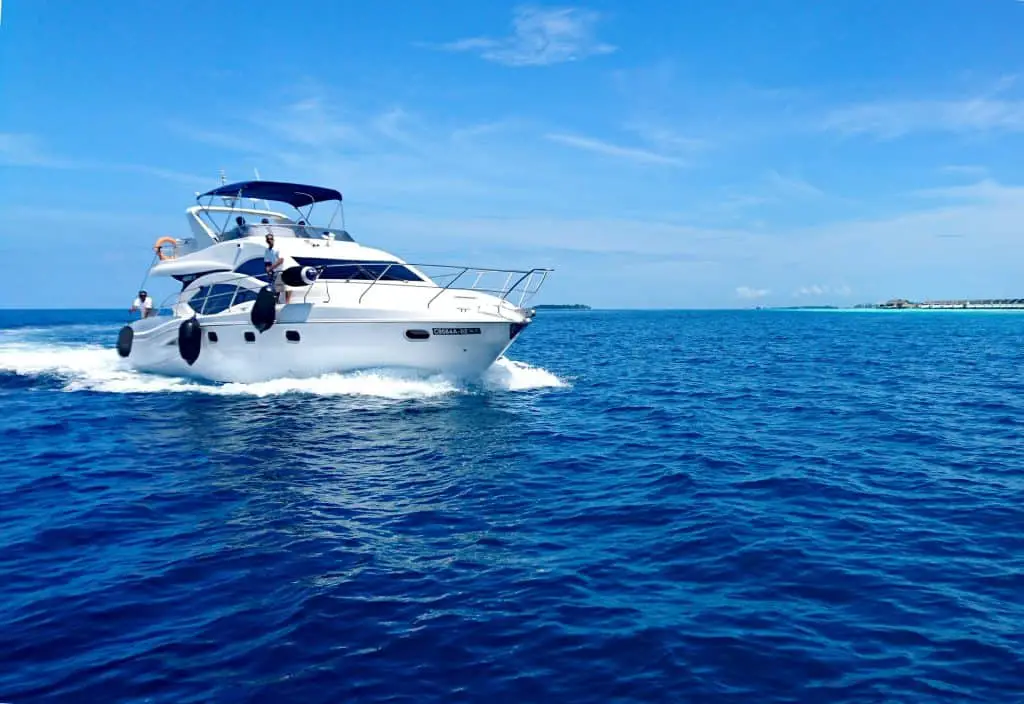
Can I Pilot My Own Yacht? Qualifications & Licenses

Benefits of Joining a Yacht Club: Why Join – Are They Worth It?

Why Do Yachts Have Black Sails? [The Reason Explained]
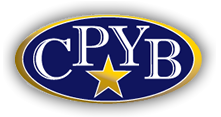
Certified Professional Yacht Brokers
Find your cpyb.
Yacht Sales Professionals (brokers, dealers, salespeople) have a benchmark for measuring their skills, abilities and performance, while, at the same time, enhancing their marketing value. Boat sellers and buyers are in a better position to select qualified, competent sales professionals with confidence and trust.
If you want to set yourself apart, the certified professional yacht broker (cpyb) program is for you..

Get Certified
CPYB Certification is the mark of excellence for yacht sales professionals throughout North America.
Earning Certification
CPYB brokers have met professional qualifications and have successfully passed a three-hour examination, testing their skills and knowledge as yacht sales professionals. If you are committed to professionalism and have what it takes, we invite you to apply.
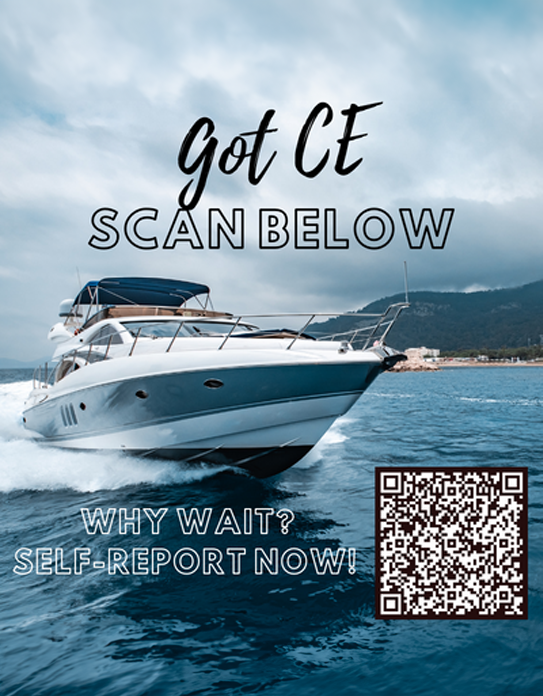
Renew Your Certification
Retaining certification ensures you stay current with industry trends.
As you know, staying competitive and successful requires a continuing commitment to educating yourself on the latest industry information and insights. That is why the basis of CPYB Recertification requires your participation in educational activities and professional involvement that help you to remain one of the most experienced brokers in the brokerage industry.
See How Companies Like Yours are Growing with CPYB
Upcoming pre-approved events.
| September 2024 | ||||||
|---|---|---|---|---|---|---|
| 1 | 2 | 3 | 4 | 5 | 6 | 7 |
| 8 | 9 | 10 11:00AM - 1:00PM EDT | 11 | 12 | 13 | 14 |
| 15 | 16 | 17 | 18 | 19 12:00PM - 2:00PM EDT | 20 | 21 |
| 22 | 23 | 24 | 25 | 26 | 27 | 28 |
| 29 | 30 |
Tue 10 2024
September 10, 2024 11:00am - 1:00pm edt, cpyb: exam prep session, webinar date: september 10, 2024.
Presenter: Staley Weidman III, CPYB & Tim Hoving, CPYB
Any CPYB Candidate (or CPYB certified member) is invited to participate in this exam prep session led by Staley Weidman III, CPYB. In this two-hour session, you will hear from 5 subject matter experts while they cover key topics under each of the five Principal Knowledge categories that candidates will encounter on the exam. Primarily intended for exam takers, but all CPYB’s who attend this session will earn 3 CE. Consider signing up and attending as a refresher!
Thu 19 2024
September 19, 2024 12:00pm - 2:00pm edt, brokers brunch: surveyor selection, survey reports and how to handle findings, webinar date: september 19, 2024.
As brokers we need to be careful with our involvement when assisting our buyers selecting a suitable surveyor. What can we do, what can’t we do? Attending the survey is the best way to understand what is discovered. The buyer-owned survey report should be reviewed to discuss normal wear and tear vs. problem items. What is the best way to handle repairs to keep your deal on track? The survey is the turning point for every transaction and your involvement and advice to your buyer can make a big difference.
June: Recognition for New CPYBs
Join us in celebrating the new CPYBs certified in June 2024.
May: Recognition for New CPYBs
Join us in celebrating the new CPYBs certified in May 2024.

April: Recognition for New CPYBs
Join us in celebrating the new CPYBs certified in April 2024.
March 2024: Recognition for New CPYBs
Join us in celebrating the new CPYBs certified in March 2024.
Industry Partners
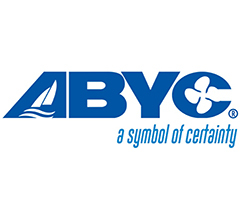
Partner Associations

CPYB :: National Press Building 529 14th Street NW, Suite 1280 Washington, DC 20045 USA Phone: 410.940.6349 Email: [email protected]
©2024 CPYB Certified Professional Yacht Brokers All images and content ©2024 CPYB All rights reserved | Legal Disclaimer


Service Locator
- Angler Endorsement
- Boat Towing Coverage
- Mechanical Breakdown
- Insurance Requirements in Mexico
- Agreed Hull Value
- Actual Cash Value
- Liability Only
- Insurance Payment Options
- Claims Information
- Towing Service Agreement
- Membership Plans
- Boat Show Tickets
- BoatUS Boats For Sale
- Membership Payment Options
- Consumer Affairs
- Boat Documentation Requirements
- Installation Instructions
- Shipping & Handling Information
- Contact Boat Lettering
- End User Agreement
- Frequently Asked Questions
- Vessel Documentation
- BoatUS Foundation
- Government Affairs
- Powercruisers
- Buying & Selling Advice
- Maintenance
- Tow Vehicles
- Make & Create
- Makeovers & Refitting
- Accessories
- Electronics
- Skills, Tips, Tools
- Spring Preparation
- Winterization
- Boaters’ Rights
- Environment & Clean Water
- Boat Safety
- Navigational Hazards
- Personal Safety
- Batteries & Onboard Power
- Motors, Engines, Propulsion
- Books & Movies
- Cockpit Confessions
- Communication & Etiquette
- Contests & Sweepstakes
- Colleges & Tech Schools
- Food, Drink, Entertainment
- New To Boating
- Travel & Destinations
- Watersports
- Anchors & Anchoring
- Boat Handling
What A Yacht Broker Can Do For You
Advertisement
Especially when buying or selling a large boat, the right broker can reduce stress and make the transaction go smoothly and painlessly.

A broker can take the complications out of buying or selling your next boat. (Photo: Michael Vatalaro)
When BoatUS member David Issacson bought his first boat 26 years ago, he searched the newspaper classifieds in the morning (remember those?), located a couple of candidates before noon, and by 3 p.m. wrote the seller a check for $1,000 for a 17-foot boat he took fishing that day. "It was so simple then," he says. "Pretty much like buying a cheap used car. I don't even think I got a bill of sale. It was all done with a handshake." Now that he's retiring, he's looking for his fourth boat, which he says will be much bigger, probably in the 42- to 45-foot range. "I have no idea what it's going to take now. I've never had a boat that was documented or had a loan on it. I don't even think they have classifieds in the paper anymore, and I'm not sure what the process is these days."
Issacson is exactly the type of person who could benefit from using a boat broker. Boat brokers are similar to real-estate agents, but with important differences: They're far less regulated, and their commission is 10 percent rather than six percent. Unlike realtors who must take classes, sit for an exam, and be licensed in every state, only boat brokers in Florida and California have to be licensed and only California requires an exam. In most other states, anyone can call themselves a boat broker. And while all brokers have certain legal responsibilities to their clients, selecting one should be done carefully. Ask around at your marina or boatyard and get referrals from others who have used a broker before. Talk to two or three and get a feel for them, just as you would with a real estate agent. One way to increase your chances of finding the right broker is to look for a Certified Professional Yacht Broker (CPYB). These brokers are members of the Yacht Brokers Association of America (YBAA), have taken a comprehensive exam, have pledged to abide by a code of ethics, and will work with the BoatUS Dispute Mediation Program (see links in sidebar).
If You're Selling
There are several advantages to using a broker, the biggest of which is exposure. Plastering "For Sale" signs in yacht clubs and marinas can't equal the power of a broker's listing, especially with larger boats that have a smaller pool of buyers who may not even be in the same state. Brokers typically list boats through websites such as Yachtworld, which is easily searchable by anyone, anywhere in the world. Only brokers can list boats on the site, which functions much like the Multiple Listing Service for real estate agents.
Here's How A Broker Can Help
If you're the seller, a broker will:.
- Advertise your boat. Brokers should list your boat on Yachtworld and advertise in other places where appropriate. Find out what their marketing plan is and get it in writing.
- Price your boat realistically. Brokers have access to recent sale prices and know a good starting point.
- Prescreen responses to advertising. This will avoid most tire kickers.
- Show your boat to prospective buyers. This will save you from wasting time with buyers who don't show up.
- Communicate all offers from potential buyers to you.
- Negotiate the selling price. This is where brokers can really earn their money.
- Draw up sales agreements and accept deposits. Many brokers can do this electronically over computers, tablets, and even smartphones.
- Arrange for sea trials and schedule surveys.
- Coordinate closing.
- Transfer funds to you. Now you can start shopping for your next boat.
Correctly pricing a boat is critical to getting it sold, and an experienced broker has a very good idea of what a boat will sell for and can price it accordingly. Brokers typically have access to what similar boats have sold for in the local area and they'll prepare a listing based on the kind of boat and type of buyers expected. They'll take photos, write an enticing description, and recommend things to improve the look and marketability of your boat. Brokers can also help you navigate some of the more confusing aspects of selling such as corporate ownership, loan payoffs, bills of sale, and other documents needed for transferring ownership. Aside from listing and advertising the boat, their most important job is helping move the process along once a buyer is found. Brokers can also help a buyer obtain financing and assist with changing the USCG documentation. While the 10-percent commission is usually not negotiable, brokers will sometimes discount it for a sale that might be falling apart because of a survey report or other defects found on a boat. The different listing contracts used by brokers can be confusing, but they're not complicated once you understand the two main types, a central agency agreement and an open listing agreement.
A central agency agreement (sometimes called an exclusive listing) means you've hired a specific broker to sell your boat. With this type of agreement, the broker typically lists your boat on Yachtworld and — this is important — is obligated to sell it through a co-brokerage arrangement. Co-brokerage means that if another broker finds a buyer for your boat, your broker agrees to split the commission with him. This incentive to help each other is why about 70 percent of all brokerage sales are co-brokered. Keep in mind, though, with this type of agreement, even if you bring in the seller or end up donating your boat, you'll still be liable for the broker's commission. The majority of brokerage sales are central agency agreements.
An open listing agreement means you've given more than one broker the right to sell your boat and you also retain the right to sell it on your own. The disadvantage is that because no broker is guaranteed at least a part of the commission, it's not very likely any of them will spend the money to list your boat on Yachtworld or pay for other advertising. There can also be confused communications between multiple brokers and potential buyers. On the other hand, a hungry broker may be more motivated to bring you a buyer because he would get the entire commission. With this type of agreement, if you find your own buyer, you don't owe anyone a commission. For either type, don't be pressured into signing for a longer term than you're comfortable with. Six months is typical, but don't be afraid to ask for less, though a broker typically needs at least a couple of months to generate interest. Usually, you can walk away from any contract after giving 30 days notice. Most agreements automatically renew, so give notice before that if you want to cancel. No matter what kind of listing, ask for biweekly progress reports.
Selling It Yourself
For Sale By Ow ner (FSBO) certainly sounds attractive. Not only do you pocket 10 percent more than if you used a broker, but you're in charge of the whole process. Selling it yourself has drawbacks, however. You won't be able to get the same kind of national exposure a broker can, and you'll be responsible for keeping the boat in top condition and available for showing. And, because most boat shopping occurs on weekends, expect to be tied down during your time off. Finally, like many others, you may simply dislike negotiating. But if you want to save some serious money, BoatUS can help. Our thousands of online classified listings are viewable by anyone, anywhere in the world, and we offer an escrow service that takes the anxiety out of the financial part of the transaction. We also offer members full documentation service, boat financing, comprehensive insurance, and on-water and roadside towing coverage.
If You're Buying
While owners may find the process of selling to be an anxious one, buyers are looking for their next dream boat and are likely to be enjoying looking around, trying to find the perfect fit. But buyers tend to get apprehensive once it comes to plunking down hard cash. This is where a broker can make the process less stressful. Brokers should have a separate bank account for holding deposits and there should be wording in the contract specifying what the sale is contingent upon as well as how and when the money will be returned if the sale falls through.
It's important to remember that the broker in a typical sale is getting paid by and working only for the seller, not the buyer. A broker will try to get the highest possible price (that's what his commission is paid from) and will try to sell his client's boat even if it's not necessarily the best deal for you. You're on your own with negotiations and paperwork advice. You can, however, enter into an agreement with a broker through a buyer's broker arrangement. A buyer's broker will represent you, not the seller. Once they know what you're looking for, they can scour their sources and suggest likely boats for you to view, assist in negotiating a price, and help with the paperwork. Typically, a buyer's broker gets a commission split from the seller's broker so there's no cost to you, but read the agreement before signing.
When it's time to seriously consider a boat, it will need to be hauled out and surveyed — something that's usually paid for by the buyer, though as with anything in a sale, that's negotiable. Never use a surveyor recommended by the broker or seller; it's critical to hire an independent, qualified surveyor (see links, below) who has no stake in the outcome. Not only will the survey uncover needed repairs and deficiencies, it will also establish a fair market value, all of which can be used for negotiations. It will almost certainly be needed for financing and insurance as well.
Useful Links
- Finding a Certified Professional Yacht Broker
- Find a Marine Surveyor
- BoatUS USCG Documentation Service
- BoatUS Financing
- BoatUS Insurance
- Find out if a Florida Broker is licensed
Related Articles
The truth about ceramic coatings for boats.
Our editor investigates the marketing claims of consumer-grade ceramic coatings.
Fine-Tune Your Side Scan Fishfinder
Take your side-scanning fishfinder off auto mode, and you’ll be spotting your prey from afar in no time
DIY Boat Foam Decking
Closed-cell foam flooring helps make boating more comfortable. Here’s how to install it on your vessel
Click to explore related articles
Charles Fort
Contributing Editor, BoatUS Magazine
Charles Fort is BoatUS Magazine's West Coast Editor. He often writes local news items for BoatUS Magazine's Waypoints column and contributes to Reports, in-depth tech features in every issue written to help readers avoid accidental damage to their boats. He is a member of the National Association of Marine Surveyors, he's on ABYC tech committees, and has a 100-ton U.S. Coast Guard license. He lives in California.
BoatUS Magazine Is A Benefit Of BoatUS Membership
Membership Benefits Include:
Subscription to the print version of BoatUS Magazine
4% back on purchases from West Marine stores or online at WestMarine.com
Discounts on fuel, transient slips, repairs and more at over 1,200 businesses
Deals on cruises, charters, car rentals, hotel stays and more…
All for only $25/year!
We use cookies to enhance your visit to our website and to improve your experience. By continuing to use our website, you’re agreeing to our cookie policy.
- Weekly Newsletter
California's Boating & Fishing News

Can I sell more than one boat a year?
Before answering this question I should ask our reader to re-examine his business plan. His fundamental premise – that he will be able to purchase and sell used boats at a profit – may be seriously flawed. But we will leave that discussion for another day.
His observations about the used car industry are accurate. Most states, including California, place restrictions on the purchase and sale of cars for a profit. In California, a dealer’s license is required for anyone that buys, sells or exchanges cars for a profit (Calif. Vehicle Code sec. 285). Yachts, ships and boats, however, are not subject to the same restrictions, but we should provide an overview of the industry’s regulatory landscape before answering our reader’s question.
Yacht Sales in California are regulated by the California Division of Boating and Waterways (DBW). The agency was formerly a stand-alone department in California but it was absorbed into the Department of Parks & Recreation several years ago. It oversees a number of programs, including a loan and grant program for the financing of launching ramps and marinas, a licensing program for captains of passenger boats that operate solely on state waters (such as Lake Arrowhead), and the licensing of yacht and ship brokers and salespeople.
Notably, California and Florida are the only states in the country that require licensing of yacht brokers. For most of the remainder of the country, a yacht broker may hang out his or her shingle and start selling boats with nothing more than a local business license.
Brokers in California are regulated under the California Yacht and Ship Brokers Act (Calif. Harbors and Navigation Code sec. 700), and regulations that are promulgated under the Act (mostly under Title 14 of the California Code of Regulations). The Division of Boating and Waterways regulates brokers through the enforcement of these statutes and regulations, issuing licenses, administering licensing examinations, auditing brokers, and where necessary, disciplining brokers for violations of the statutes and regulations.
With this framework in mind, let’s get to our reader’s question by looking at a couple definitions. The California Yacht and Ship Brokers Act defines “Yacht” as a vessel that is over 16 feet in length and that measures less than 300 gross tons (section 701(c) of the Act. “Broker” is defined in section 701(a) of the Act as a person who “Sells or offers to sell, buys or offers to buy, solicits or obtains listings of, or negotiates the purchase, sale, or exchange of yachts, and who DOES NOT OWN THOSE YACHTS. The key to this definition is in the five words that I emphasized at the end. A broker’s license is NOT required for someone who sells a boat that they own, regardless of how many boats they are selling and regardless of whether they make a profit – or are trying to make a profit.
Our reader may therefore proceed with his plan without first obtaining a yacht brokers license. He should nonetheless consult with an attorney who is familiar with the general business regulations that he will be subject to, including statewide issues such as sales and use tax and the regulations of his local community.
David Weil is licensed to practice law in the state of California and, as such, some of the information provided in this column may not be applicable in a jurisdiction outside of California. Please note also that no two legal situations are alike, and it is impossible to provide accurate legal advice without knowing all the facts of a particular situation. Therefore, the information provided in this column should not be regarded as individual legal advice, and readers should not act upon this information without seeking the opinion of an attorney in their home state.
David Weil is the managing attorney at Weil & Associates (weilmaritime.com) in Long Beach. He is an adjunct professor of Admiralty Law at Loyola University Law School, is a member of the Maritime Law Association of the United States and is former legal counsel to the California Yacht Brokers Association. If you have a maritime law question for Weil, he can be contacted at 562-438-8149 or at [email protected] .
Ask your question online at thelog.com .
Share This:
- ← Does a boat repair professional need a contractor’s license?
- Reader asks if he can place a mechanic’s lien on brother’s boat →
Comments Cancel reply
Your email address will not be published. Required fields are marked *
Your Thoughts are Appreciated
Save my name, email, and website in this browser for the next time I comment.
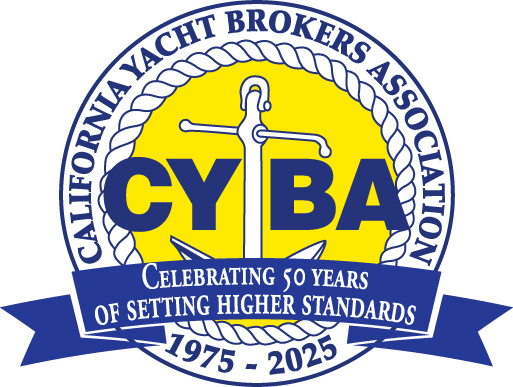
California Yacht Brokers Association

PURCHASING A USED BOAT IN CALIFORNIA
A courtesy publication provided by the California Yacht Brokers Association.
Helpful advice if you are looking to buy a previously owned boat in California
Californians love water sports and boating is a wonderful recreational activity for the whole family.
This guide has been prepared to advise you on how to search for, purchase and enjoy a previously owned boat in California. It’s presented as a service of the California Yacht Brokers Association (CYBA). Please review this information and refer to it as you go through the purchase process.
You can also contact the CYBA through our website https://www.cyba.info or call 1-800-875-CYBA for more information.
California yacht brokers (and salespersons) can provide the expertise and experience needed to assist you with all aspects of purchasing a used boat. We are state-licensed professionals who specialize in the boating business and our bonded bank trust accounts secure your deposit funds.
1. Finding the right boat
2. how can you prepare for boat ownership, 3. what does a boat really cost , 4. choosing your boat, 5. private party sale, 6. the california yacht broker advantage, 7. your broker can help you prepare for an offer, 8. making an offer, 9. evaluation – trial run, marine survey and other inspections.
- 10. Acceptance, Funding and Closing
11. Boating safely
12. more on the cyba, 13. resource guide – websites.
- Special Thanks
Download complete BUY SMART brochure in PDF format
Begin by asking yourself a few questions:
• Where do you want to do your boating? (Lakes, rivers, bays, ocean?) • What type of boating appeals to you? (Fishing, cruising, entertaining, sailing, racing) • What is the best size and type of boat for your intended use? (Runabout, express cruiser, day sailer, trawler, motor yacht, sport fisherman) • How many people will be boating with you? (Family, couples, friends, solo) • How often will you use your boat? (Weekends, seasonally, year round, or live-aboard) • Where will you keep it? (Marina, rack storage, on a trailer) • What is your budget? (Include the initial cost of the boat, plus additional expenses for maintenance, storage, insurance, etc.)
Once you know where you’ll boat and the type of boating you’re going to do, the selection process begins. The internet, boating magazines and local boat shows are all great resources to narrow your search. This is also a great time to contact a local California yacht broker and take advantage of the experience and expertise they offer.
Determining the type of boat you want to buy is fun and the more time you spend researching, the happier you’ll be with your final decision. Whether you are ready to buy this weekend or planning a boat purchase years away, this guide helps you understand the process.
Boating provides freedom, independence and a sense of adventure that few other activities can match. To prepare yourself for boat ownership consider taking classes in boating safety, basic navigation, boat handling & safety, first aid, CPR and weather. Check with your local community colleges, the U.S. Power Squadron and the U.S. Coast Guard Auxiliary to find boating safety classes and learning materials, all of which are typically very inexpensive. You may also want to inquire about boating and sailing classes, private lessons, hiring a licensed captain or chartering a boat to try it before you buy it – anything to improve your boating skills and knowledge.
What kinds of boating safety classes are available? • Skills and seamanship for power boaters • Sailing and seamanship for sailors • Coastal navigation • Piloting and boat handling • Rules of the road
The total cost of boat ownership begins with the price you pay for your boat and the sales (or use) tax. There are costs involved in your discovery phase (like hiring a surveyor and hauling the boat out for inspection). After you buy your boat you will likely have expenses to “make it yours.” You may have to make improvements and/or fix up items found during the survey. There are a number of recurring costs; boat washing and waxing, hull cleaning and bottom paint, insurance premiums, marina slip rent, normal maintenance and repairs. These costs can be reviewed and estimated with the help of your California yacht broker.
Boat buyers either pay cash or secure a loan. Marine lenders specialize in boat financing. They can review your credit history to help determine an affordable monthly payment. Getting pre-approved for a loan will help determine how much you can comfortably afford. Loan approval also gives the seller more confidence that you can afford the purchase price.
• Your broker can refer you to marine lenders who specialize in boat loans for the best rates and terms. • Typically the required down payment is 20% of the purchase price. Loan terms usually range from 10 to 20 years. • Interest rates can be fixed or variable.
Boat Insurance
Marinas, lenders and ship yards require proof of insurance. Your California yacht broker and marine insurance agent can help determine the coverage you need. Insurance costs depend upon several factors including:
• Value of boat • Age of the boat • Type of boat • Your boating qualifications and experience • Where and how you plan to use your boat • Surveyor recommendations
Where will you keep your boat? California marinas are plentiful and widely situated, the marina of your choice may have a waiting list. Smaller boats can usually be kept on a trailer and parked in a boat storage lot or in your driveway depending upon local codes. Certain locales offer “rack storage”, which consists of tiered storage cubicles, wherein your boat is taken out, used, and then returned to its storage space by the facility operator. Usage of such a facility could in some cases negate the need for a trailer.
Smaller trailerable boats also require an appropriate sized tow vehicle, with the necessary lights and mirrors tow package to be safe on the highway. You also need a good trailer that is properly registered to safely and securely transport your boat. You can learn more about towing boats and vehicles from the Boating Basics Online website.
Once you have chosen a style of boat; price, quality, condition, age, options, equipment, and location all need to be evaluated before making an offer. Some boats need attention; they have not been maintained by their owner and are in need of repairs. Deferred maintenance on a “project boat” can add substantially to your overall cost. Older boats may require updating to modern safety, mechanical and comfort standards. Most people prefer to pay a bit more up front and find a “turnkey” boat, one that is well maintained, ready for immediate use and shows pride of ownership.
The internet is an incredible resource available 24/7. You can learn all kinds of details about various boats by checking out boat manufacturers and yacht broker websites. Blogs, forums and owner user groups can provide extremely helpful insights for you to learn more about actual owner experiences on specific models. Print media publications including magazines and books are also an important component to assist your search. For obvious reasons you should try to avoid any “sight unseen” purchase by “ordering” online. Seeing boats in person is the best way to confirm you are on the right track.
Boat shows are an especially effective means for seeing a wide variety of boats in one location. In addition, boats are often available to go aboard, dealers and brokers are in attendance to answer questions and the asking prices enable you to start determining relative values. The CYBA is a strong supporter of, and partner with, the National Marine Manufacturers Association (NMMA) for major boat shows in San Francisco, Los Angeles and San Diego. There are also other boat shows throughout the state at different times during the year and going to them allows you to answer the following questions:
• How does the boat feel? What is the condition? • Does it fit you and your guests? What is the quality level? • Does it have the layout you require? Is there enough capacity? • How is the visibility? Is it the right style of boat for your needs?
Attending boat shows, visiting a dealer showroom or dock and working with your yacht broker allows you to get aboard and answer these important questions and more.
Some used boats are offered for sale directly by their owners. For sale by owner or private party offerings may be found online, in classified advertisements or as an announcement on a public bulletin board. You need to be especially cautious when you go it alone. Think “buyer beware” as you face additional risks when entering into a private transaction.
Private party sale concerns to consider:
• Who writes up a contract outlining the transaction details? • Will a deposit be held in a legitimate escrow account? • What sort of evaluation process ensures you are buying a safe and sound boat? • How will taxes be assessed? • Is there a clear title? • Who conducts a legitimate transfer of ownership? • How can you ensure a secure final payment? • What happens if there is a dispute and who resolves it? • Who will look over your shoulder to catch whatever you might have overlooked? • Who will be there to spot obvious and not-so obvious red-flags?
When you enter into a private party sale you have to be sure the person selling the boat is the legitimate owner and that they have a title document in their name to convey the boat (and trailer).
Transactions that are conducted utilizing a California yacht broker have multiple safeguards in place to address the concerns raised above. Unless there is a strong, compelling reason to purchase through a private party, you are better protected working with a licensed California yacht broker. California yacht brokers must pass a state licensing examination and have the credentials to guide you through the negotiation phase and due diligence process.
Selecting your broker is just as important as finding the right boat to purchase. Brokers are experienced, licensed and bonded professionals who specialize in this business. They are accountable to you, the buyer and to the DBW (Division of Boating and Waterways) to fulfill their legal responsibilities. Their fiduciary duty lies with you.
When looking for a broker, ask for references. Don’t commit until you find someone you connect with and trust. When you find a broker who can serve as your trusted sales advisor, you will have their full support throughout the entire purchase process.
Brokers know the boating market, have a vast network of marine industry contacts and many additional resources to utilize and help you research availability and determine fair market value.
One thing brokers can’t do is guarantee the condition of the boats they’re offering. That’s an important reason to make the purchase conditional on a trial run and survey(s).
Working with a CYBA yacht broker affords the buyer an additional layer of protection.
• The CYBA works closely with the Division of Boating and Waterways to ensure consumer protection and professional standards. • CYBA members have access to specialized contracts authored by leading maritime attorneys who protect all parties in the transaction. • CYBA members must abide by a nationally recognized, strict Code of Ethics designed to provide a high level of consumer protection. • Many CYBA members have the designation of being a Certified Professional Yacht Broker (CPYB) that further signifies a commitment to conducting business in a professional manner. CPYB member brokers qualify by passing an additional, stringent written examination, and must maintain continuing education requirements.
The “Due Diligence” process of evaluating the boat you want to purchase is typically a short window of time from the date the offer is accepted to closing. It is important to ensure that the boat you are going to buy will be free and clear of any encumbrances or obligations, that it is sound, operational and has the value to justify the price you are paying.
Once an offer is accepted, your broker should coordinate the time and date for the trial run and survey(s) with you and the seller. Your broker should be able put you in touch with good contacts to provide you the necessary services to complete your transaction.
Your offer must be presented as a signed Purchase Agreement that includes; offer price, deposit amount, trial run and survey deadlines and contingencies that must be satisfied for the transaction to be completed. It is very important to get everything in writing.
What your Purchase Agreement should include:
- Buyer and Seller identification.
- Legal description of the boat.
- Legal description of other auxiliary boats such as tenders.
- The amount offered, deposit and how the deposit will be held in the broker’s trust account. The deposit should be fully refundable if your contingencies are not met satisfactorily less any buyer authorized expenses.
- Specific dates that spell out the length of the contract and when the transaction will close.
- The purchase price, including any deposits you have paid and how you will pay the balance.
- Buyer’s final acceptance signature agreeing all contingencies are satisfied.
- A statement confirming the boat will be free of liens and encumbrances.
- Details about the closing date and location for delivery.
- Remedies for default by either party.
- Dispute resolution provision.
The CYBA offers time tested contract forms containing items mentioned above and other important provisions. CYBA forms save time and money in completing your transaction.
Many small boats have DMV (Department of Motor Vehicles) registration for the boat with CF numbers and DMV registration with license plates for the trailer. The title needs to be signed over to you by the seller. In order for the title to transfer the ownership change must be recorded by the DMV.
Larger boats (typically over 24’) are often federally documented through the US Coast Guard and not state registered. Many large boat sales include a tender or auxiliary craft that are included with the sale. The smaller boat(s) are often state registered and that title paperwork also needs to be properly signed to transfer ownership.
Your offer has been accepted, your financing is in place and now it is time for the trial run. This allows you to see how the boat performs on the water. It also provides the opportunity to test the vessel’s systems underway to see how they work.
As the buyer, you are responsible for all the costs to evaluate the boat, whether you purchase the vessel or not. Brokers are paid out of the selling price; you don’t pay for their representation separately. Your due diligence typically includes the cost of the surveyor(s) hired and the shipyard expenses.
The next step is to proceed with the marine survey. Your surveyor should inspect the boat both in and out of the water and will provide you with a written report detailing the condition of the vessel and an appraisal of the value. We strongly recommend that you have a mechanical inspection for engine(s) and, if purchasing a sailboat, a rig survey.
Hire an independent surveyor who you personally select. Make sure the surveyor you select is approved by your lender and insurer. Many brokers will refrain from suggesting a surveyor, in order to eliminate any conflict of interest. However, your broker can direct you to lenders, insurers, and boat yards to assist you in the selection of an independent surveyor or provide a list of surveyors in the area. The written survey report identifies issues the surveyor discovers and should also include a current market valuation. You can find marine surveyors by contacting the Society of Accredited Marine Surveyors (SAMS) and/or the National Association of Marine Surveyors (NAMS). One word of caution: California has no occupational licensing standards for marine surveyors.
You and your broker should be present during the trial run and survey. Don’t be afraid to ask the surveyor questions about their findings. The surveyor’s main focus is to validate the boat’s structural integrity and deem the boat safe, insurable and able to be used for its intended purpose. Keep in mind that surveys are no guarantee against hidden or undetected defects. It’s also a good time to realize you have chosen a used, previously owned and operated boat, and there may be wear, maintenance issues, and obsolete systems and accessories. These items, as reported in your survey findings, are the trade-off you assume when opting not to spend the often considerable increase in cost of a new boat. It is key to have realistic expectations when it comes to your choice of a brokerage boat. Your surveyor(s) and your broker are there to help you assess your findings to determine if you are getting the vessel and the value that you sought out.
10. Acceptance, Funding and Closing
There are usually many documents to sign to complete a boat sale correctly. Your broker can guide you through the following processes:
- Buyer initials that contingencies are satisfied and signs Final Acceptance on the Purchase Agreement.
- Bill of Sale or Certificate of Title is signed off by Seller.
- Funds are distributed.
- Your insurance is in place.
- Proper registration and documentation are transferred.
- Formal delivery of vessel, you are handed the keys and the boat is now yours.
- You will receive a Final Statement itemizing all charges and credits.
Congratulations, you own a boat! Now you and your family can create a wonderful new set of memories. Enhance everyone’s experience and become boat smart. Take the time to explain safe boating practices to all aboard before you leave the dock.
Before you sail off on great adventures, take some time and get to know your boat. Learn all of the systems, how to dock, anchor and boat handling skills. Many new owners will arrange for lessons with a qualified skipper.
There is an old saying, “Safe Boating is NO Accident”. The CYBA encourages you to explore the safety classes offered by the U.S. Coast Guard Auxiliary and the U.S. Power Squadron. Classes are available to boaters throughout the state, with nominal fees for books and materials. You may even be able to reduce your insurance premiums by completing one of these classes. To find out about classes near you, contact your yacht broker or do an online search.
The DBW has created two very helpful booklets, “The ABC’s of Boating (a guide to boating law and safety)” and “California Boating (a course for safe boating)”. These excellent publications are available on their website and discuss safe boating operations, navigational rules of the waterways, boating laws, emergency and accident procedures, green practices, boat ownership, docking, fueling, anchoring and much more. Both of these resources can be read online or downloaded as PDF’s at: http://www.dbw.ca.gov/pubs/ABC/ABCFull.pdf or http://dbw.ca.gov/PDF/DBWBoatCourse.pdf .
A new requirement was passed into law in 2015 to require all boaters to have a card regardless of age by 2025. Implementation will begin in 2018. You can learn more about the effective dates and requirements of the California Vessel Operators Card by going to the link: http://www.dbw.ca.gov/boaterinfo/sb941faq.aspx .
The US Coast Guard created “A Boaters Guide to the Federal Requirements for Recreational Boats”. This pamphlet can be read online or downloaded as a PDF: http://www.uscgboating.org/images/420.PDF .
Founded in 1975, the California Yacht Brokers Association is a non-profit group of yacht brokers, salespeople and marine-related affiliates dedicated to conducting business with integrity, dignity and the highest standards of professionalism. The CYBA became the first yacht broker association in the United States and continues to lead the marine industry. The CYBA retains a lobbyist in Sacramento to fight for boater’s rights.
The CYBA has always maintained a close relationship with the DBW to promote boating consumers’ interests and has a respected grievance and arbitration process to address complaints and disagreements. Contact the CYBA for more information.
Contact the CYBA at [email protected] or 925-588-8929
Resources are for information purposes only and does not necessarily constitute an endorsement by the CYBA.
- www.aaa.com AAA – The Automobile Club of America
- www.abyc.com American Boating and Yacht Council
- www.boatuniverse.com Boat Universe
- www.boatus.com BoatU.S.
- www.boatingbasicsonline.com Boating Basics Online
- www.boe.ca.gov California State Board of Equalization
- www.cgaux.org U.S. Coast Guard Auxiliary
- www.cpyb.com Certified Professional Yacht Brokers
- www.cyba.info California Yacht Brokers Association.
- www.dbw.ca.gov Division of Boating and Waterways
- www.dmv.ca.gov California Department of Motor Vehicles – small boats and trailer regulations
- www.marina.org Marina Recreation Association
- www.marinesurvey.org SAMS – Society of Marine surveyors
- www.namsglobal.org NAMS – National Association of Marine Surveyors
- www.nmma.org NMMA National Marine Manufacturers Association
- www.safeboatingcouncil.org National Safe Boating Council
- www.uscg.mil United States Coast Guard
- www.usps.org U.S. Power Squadron
- www.ussailing.org United States Sailing Association
- www.yachtr.com YachtR
- www.yachtworld.com Yachtworld
- www.yatco.com Yatco
Complete URL website links for publications referenced:
- DBW – ABC’s of Boating http://www.dba.ca.gov/pubs/ABC/
- DBW – California Boating http://dbw.ca.gov/PDF/DBWBoatCourse.pdf
- DBW – California Vessel Operator’s Card www.dbw.ca.gov/boaterinfo/sb941faq.aspx
- USCG – Boater’s Guide http://www.uscgboating.org/images/420.PDF
Special thanks
The California Yacht Brokers Association is grateful to Sherry Cameron of Cameron’s Cove Yacht Sales for creating the original guide published by the DBW. We’d also like to thank Jeff Merrill of Jeff Merrill Yacht Sales and Nick Friedman of The Shoreline Yacht Group, and the Board of Directors of the CYBA for their rewrite and update of this guide.
- Type a title or code for matches
- No quick matches found
- Search for keyword results
License: Yacht and Ship Salesperson's License
Licensing agency, description, additional details.
- State exam required
- Experience required
- No criminal record requirements

COMMENTS
Yacht & Ship, FL 12 P.O. Box 942896 Sacramento, CA 94296 Delivery service (FedEx, UPS, etc.) packages must be sent to: *Contact Name Division of Boating and Waterways Yacht & Ship, FL 12 4940 Lang Ave, Dock H McClellan, CA 95652
Broker License Application Information. The following is a summary of the requirements and procedures for obtaining a California Yacht and Ship Broker License. Minimum Qualifications to Apply. Be at least 18 years of age. Have an established place of business located in California (post office box, mail drop or telephone answering service is ...
The Yacht and Ship licensing unit has three staff that oversees the duties of the program. Program staffs are two Licensing Administrators (SSA) and one Enforcement Officer (AGPA). The 3-year average budget for the program was $375,000.00. The 3-year average cost to administer the operations of the Yacht and Ship Program was $358,947.33.
Founded in 1975, the California Yacht Brokers Association in 2025 will be celebrating 50 years of setting higher standards in our industry. About the CYBA California was the first state to require brokers and sales personnel to be licensed and bonded .
Proof of present employment as a yacht broker for at least 1 year. Proof of employment as a yacht broker for at least three years in the past 10 year period. Proof of ethical yacht sales and necessary documentation. A dedicated escrow/trust account for all client funds in trust. Where applicable, the individual holds all necessary licenses ...
Boat sellers and buyers are in a better position to select qualified, competent sales professionals with confidence and trust. If you want to set yourself apart, the Certified Professional Yacht Broker (CPYB) program is for you. CPYB Certification is the mark of excellence for yacht sales professionals throughout North America.
Membership. Brokers and salespeople in California are licensed by the state after taking a thorough qualifications test that measures their skills, abilities and understanding of the Harbors & Navigation code. Since 1974, CYBA members have set the performance standard for yacht sales professionals throughout California.
FIRST STATE TO REQUIRE LICENSING. California was the first state to require brokers and sales personnel to be licensed and bonded. The efforts of the California Yacht Brokers Association goes beyond that which is required by law and offers further protection and services to the consumer.
The yacht brokerage process typically begins when a boat seller lists the yacht with a broker. Generally, the seller will agree to pay a commission to the yacht broker when the vessel sells (usually 10 percent of the boat's purchase price). This commission will be paid to the selling broker at the closing.
733. The department may deny an application or may suspend or revoke the license of a yacht broker or yacht salesperson who, within four years immediately preceding, has committed any of the following acts: (a) Has procured a license under this article for himself or herself or another by fraud, misrepresentation, or deceit.
Salesperson License Application Information. The following is a summary of the requirements and procedures for obtaining a California Yacht and Ship Salesperson License. Application Process. To be eligible, an applicant must be sponsored by a licensed yacht and ship broker who plans to employ the applicant. The broker may contact the Division ...
Eligibility Requirements. If you have been a yacht broker for two-years and work or are affiliated with a Brokerage House that follows strict ethical business practices, you are candidate eligible. Becoming a CPYB signals to your buyers and those in the profession that you have broad-based competencies and skills that puts you in an elite group.
Unlike realtors who must take classes, sit for an exam, and be licensed in every state, only boat brokers in Florida and California have to be licensed and only California requires an exam. In most other states, anyone can call themselves a boat broker. ... he's on ABYC tech committees, and has a 100-ton U.S. Coast Guard license. He lives in ...
Comments: A $15,000 surety bond or cash deposit is required when applying for a yacht brokers license. Bond is not required for Salesperson, they are covered under the sponsoring licensed California broker. Authority: Harbors and Navigation Code, Chapter 5, Article 2, Sections 700-740; California Code of Regulations, Title 14, Sections 7601 ...
Yacht Broker. Richard Boland Yachts. CYBA. My name is Leilani Wales, CPYB. I am the President of AGL Yacht Sales in San Diego, the Chairwoman for the CYBA GEO (Growth-Expansion-Outreach) Committee, and the CYBA 2 nd Vice President. My family owned a business school in the Philippines. I was taught that education is very important.
Yacht & Ship Broker Licensing. DBW licenses and regulates yacht brokers and salespersons in California. Those selling used vessels 16' or longer and less than 300 gross tons, for others, are required to be licensed. DBW enforces the Harbors & Navigation Code to regulate the activities of licensees to ensure compliance and provide consumer ...
A Certified Professional Yacht Broker (CPYB) is recognized as having achieved the highest level of industry accreditation, available only to fully-qualified yacht sales professionals. The CPYB program is administered by Yacht Brokers Association of America in partnership with International Yacht Brokers Association, Northwest Yacht Brokers ...
Yacht and Ship Broker Licensing Unit Licensing Agency Contact Information: Address: One Capitol Mall, Suite 500 Sacramento, CA 95814: Phone Number: ... Sec. 700-740; California Code of Regulations, Title 14, Sec. 7601-7623. Occupations To Which This License Applies: Occupation Title: SOC Code: Retail Salespersons : 412031
The California Yacht and Ship Brokers Act defines "Yacht" as a vessel that is over 16 feet in length and that measures less than 300 gross tons (section 701 (c) of the Act. "Broker" is defined in section 701 (a) of the Act as a person who "Sells or offers to sell, buys or offers to buy, solicits or obtains listings of, or negotiates ...
Unless there is a strong, compelling reason to purchase through a private party, you are better protected working with a licensed California yacht broker. California yacht brokers must pass a state licensing examination and have the credentials to guide you through the negotiation phase and due diligence process.
If you are not a licensed California Broker/Salesperson, you CANNOT legally sell or advertise boats physically located in the State of California. To verify whether someone is currently licensed, please contact Monique Cabral at (916) 902-8793 or David Klosinski at (916) 902-8791. Yacht and Ship Brokers by Business - Find a licensed broker by ...
Average Time to Process Application: 1 month. Renewal Period: Annually. Special License Requirements: Applicant must be a minimum of 18 years of age. Comments: The employing broker must be licensed and bonded. Authority: Harbors and Navigation Code, Chap. 5, Art. 2, Sec. 700-740; California Code of Regulations, Title 14, Sec. 7601-7623.
State of California - Natural Resources Agency DEPARTMENT OF PARKS AND RECREATION. ... BROKER'S LICENSE NO. DATE. ... DEPARTMENT OF PARKS AND RECREATION Division of Boating & Waterways Yacht and Ship Broker Licensing Unit. P.O. Box 942896. Sacramento, CA 94296-0001. For moreinformation and to find Boating and Waterways contact information ...